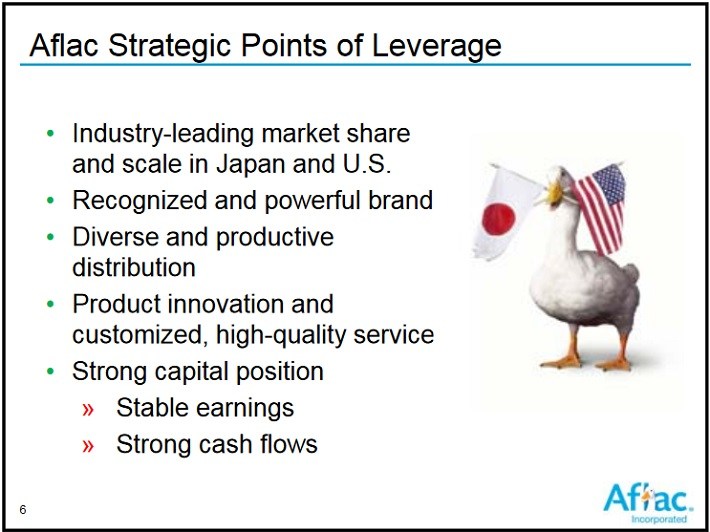AFLAC (AFL) stock fell 4% in early trading on February 1, after the company posted quarterly earnings that fell short of expectations.
A declining share price is never a welcome sight. But long-term investors should not lose focus of the bigger picture.
Aflac is not a “get-rich-quick” stock. Instead, it is more of the “build-wealth-slowly” type.
Aflac has a long history of steadily enriching investors over time. It is a Dividend Aristocrat, a group of companies with 25+ consecutive years of dividend increases.
In fact, Aflac has raised its dividend for 34 years in a row.
That by itself speaks to the strength of Aflac’s business model. There are only 51 Dividend Aristocrats in the S&P 500. You can see the entire list of all 51 Dividend Aristocrats here.
Aflac maintains its excellent track record thanks to a highly profitable business model, a leadership position in the insurance industry, and a commitment to growing its dividend each year.
Results Overview
Aflac has a very strong business model. It operates in a niche industry, and has a dominant position in that category.
Aflac sells supplemental insurance products, which pay out to policy holders if they are sick or injured and cannot work.
The company enjoys a strong brand and global scale, which leads to high profit margins and steady growth.

Source: Fourth Quarter Presentation, page 4
For the fourth quarter, Aflac posted earnings of $751 million. Earnings-per-share came to $1.84, or $1.54 on an adjusted basis.
Analysts on average were looking for earnings-per-share of $1.64. Aflac missed expectations by approximately 6%, and investors have responded by selling the stock.
However, long-term investors should keep in mind that Aflac’s net earnings-per-share increased 7.6% from the same quarter last year. So there appears to be nothing wrong with Aflac. Rather, the company is growing earnings nicely.
One caveat is that currency played a role in boosting Aflac’s results. Since Aflac derives approximately 75% of its premium income from Japan. This means the company’s earnings-per-share are dependent in part on exchange rates between the yen and the dollar.













Leave A Comment